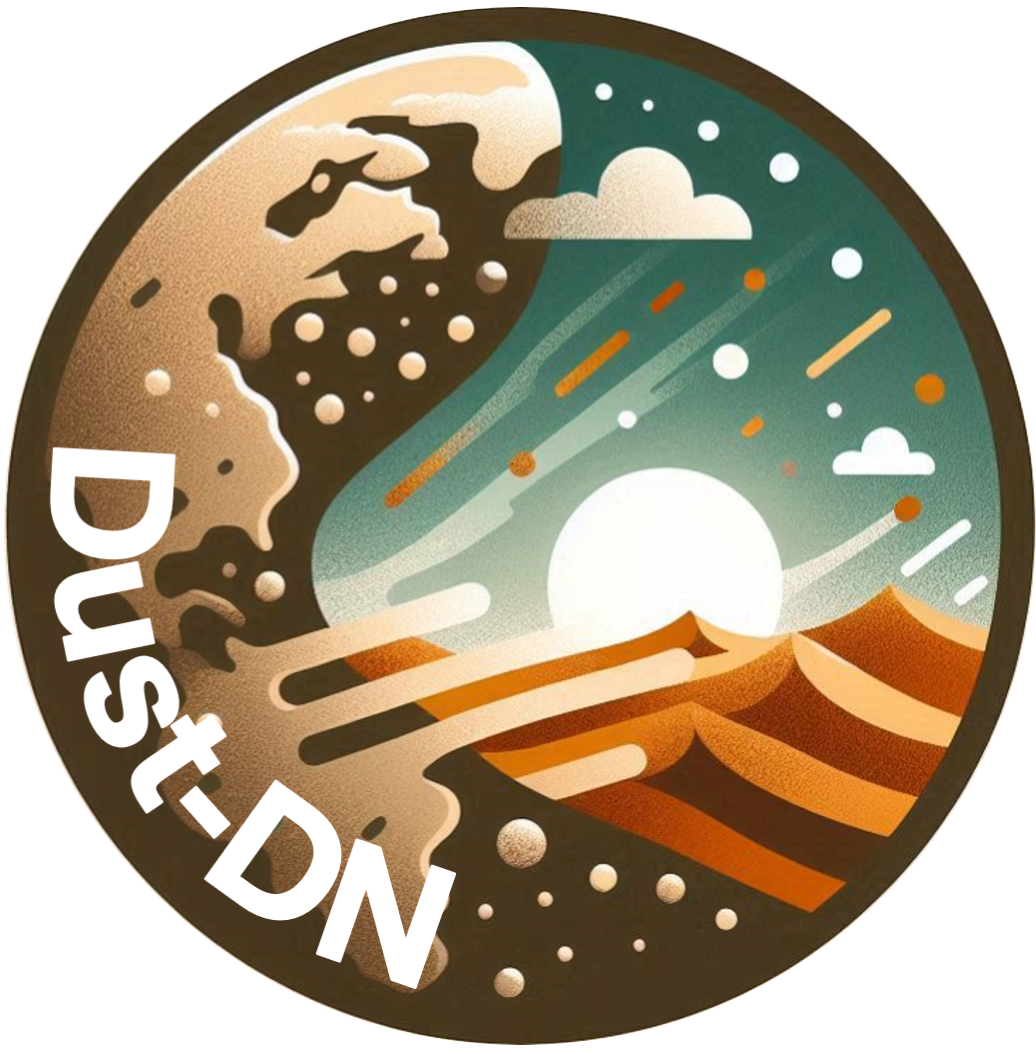Dust-DN recruits 17 doctoral candidates (including one at KIT)
 The Dust Doctoral Network (Dust-DN) has been selected with full marks to contribute to the Marie Skłodowska-Curie Actions (MSCA) of Horizon Europe, and will officially start operations on 1 November 2024.
The Dust Doctoral Network (Dust-DN) has been selected with full marks to contribute to the Marie Skłodowska-Curie Actions (MSCA) of Horizon Europe, and will officially start operations on 1 November 2024.
Atmospheric dust gives us one of the most visible and detectable aspects of transboundary transport of atmospheric constituents, impacting visibility, radiation and climate. What is less evident are its impacts on health, transportation and energy production. The doctoral network will be driven by the following research objectives, at the frontier of science on atmospheric mineral dust: (1) Understanding of the fundamentals of dust microphysical properties and processes; (2) Identifying the influence of source regions on atmospheric dust properties; (3) Socio-economic impacts of dust on health, aviation and energy production; and (4) Dust in the global climate system. The partners have unique scientific facilities for addressing these objectives, and a number of methodologies will be used, including field observations, remote sensing, numerical modelling and laboratory experiments.
A recruitment campaign for seventeen doctoral candidates within our prestigious network has now started. Within Dust-DN, the Mineral Dust group led by Martina Klose will host one doctoral student and secondments of three other doctoral students. Furthermore, Martina will also coordinate the work package on “Understanding of the fundamentals of dust microphysical properties and processes”.
The Dust-DN website explains the network’s objectives and displays the job adverts: https://dust-dn.cyi.ac.cy/
Applications can still be submitted until 30th September 2024. It is important to consider the eligibility criteria, especially mobility requirements.
Details on the application process: https://dust-dn.cyi.ac.cy/application-details/
An informational webinar is planned on 18th September 2024: https://dust.aemet.es/news-events/events/europe-webinar-for-the-dust-doctoral-network
Dust-DN in a nutshell:
- The first doctoral network on a European scale (to our knowledge), bringing together expertise on mineral dust in the atmosphere, combining multidisciplinary aspects.
- A strategic international, interdisciplinary and intersectoral alliance of high-profile beneficiaries and associated partners, able to leverage on unique state-of-the-art facilities
- A careful blend between individual research projects and integrated combined training and networking, and a critical mass on dust-focused studies using complementary methodologies.
- Exposure of the doctoral candidates to differing research and working environments, multiple technologies and methodologies.
- Training in the atmospheric sciences, dust science questions, transferable skills and on the partners’ unique research infrastructures, enabling to tackle the bigger picture of dust challenges.
- Dedicated applied research projects with direct contributions and impacts embedded with the societal and industrial sector.
